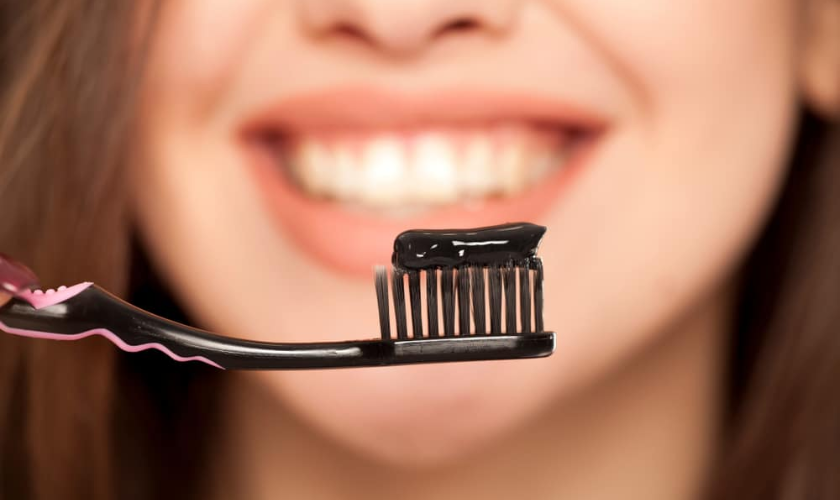Kentwood, MI

Teeth Whitening for Sensitive Teeth: Tips and Tricks

Teeth whitening has become increasingly popular as a way to enhance one’s smile and boost confidence. However, for those with sensitive teeth, the thought of undergoing a whitening treatment can be daunting. Teeth sensitivity can make the process uncomfortable or even painful. But fear not! There are gentle methods and techniques available to help you achieve a brighter smile without causing sensitivity issues. In this comprehensive blog, we’ll discuss the ways to take care of your teeth whitening results if you have sensitive teeth.
Causes of Teeth Sensitivity
Teeth sensitivity, also known as dentin hypersensitivity, can occur when the enamel (the outer layer of the tooth) is compromised, exposing the underlying dentin and nerve endings. Several factors can contribute to enamel erosion and dentin exposure, leading to sensitivity:
Enamel Wear: The enamel on our teeth can wear down over time due to various factors such as aging, aggressive brushing, or abrasive toothpaste. As the enamel thins, the underlying dentin becomes more susceptible to external stimuli, resulting in sensitivity.
Gum Recession: Gum recession, often caused by gum disease or aggressive brushing, can expose the roots of the teeth. Unlike enamel, the tooth roots are not covered by protective enamel, making them more sensitive to hot, cold, and acidic foods and drinks.
Tooth Decay: Cavities and tooth decay can compromise the structure of the tooth, leading to the exposure of the underlying dentin and nerves. This can result in increased sensitivity, especially to sweet foods and beverages.
Teeth Grinding: Bruxism or teeth grinding and clenching, can exert excessive pressure on the teeth, wearing down the enamel and exposing the dentin. This can lead to heightened sensitivity, particularly when consuming hot, cold, or acidic foods and drinks.
Acidic Foods and Beverages: Consuming highly acidic foods and beverages can erode the enamel over time, making the teeth more susceptible to sensitivity. Acidic substances can also irritate exposed dentin, leading to discomfort and sensitivity.
Tips and Tricks for Gentle Teeth Whitening
Consult Your Dentist: Before embarking on any teeth whitening journey, it’s crucial to consult with your dentist, especially if you have sensitive teeth. Your dentist Kentwood can assess the health of your teeth and gums and recommend the best whitening option for you. They may also identify any underlying issues that need to be addressed before whitening.
Use Whitening Toothpaste: Look for toothpaste specifically formulated for sensitive teeth. These kinds of toothpaste contain ingredients like potassium nitrate or fluoride, which help to desensitize the teeth while gently removing surface stains. Use the toothpaste regularly for effective results.
Avoid Harsh Whitening Products: Steer clear of whitening products that contain harsh abrasives or chemicals, as these can further irritate sensitive teeth. Instead, opt for gentle whitening products that are specifically formulated for sensitive teeth. Look for products with lower concentrations of hydrogen peroxide, which can be less abrasive.
Try At-Home Remedies: Natural remedies can be effective in gently whitening teeth. Baking soda, for example, is a mild abrasive that can help remove surface stains. Mix a small amount of baking soda with water to form a paste, and brush your teeth with it once a week. Similarly, rinsing your mouth with a diluted hydrogen peroxide solution can help whiten teeth gently.
Limit Acidic Foods and Beverages: Acidic foods and drinks can erode the enamel and worsen teeth sensitivity. Limit your consumption of these foods and beverages, or rinse your mouth with water after consuming them to help neutralize the acid.
Use a Soft-Bristled Toothbrush:
- Opt for a soft-bristled toothbrush, which is gentler on the teeth and gums.
- Brush your teeth gently in circular motions to avoid further irritation.
- Avoid aggressive brushing, as this can wear down the enamel and exacerbate sensitivity.
Consider Professional Whitening: If you’re considering professional teeth whitening, discuss your sensitivity concerns with your dentist. They may recommend in-office treatments that are less likely to cause sensitivity, such as laser whitening or professional-grade whitening gels with added desensitizing agents. Professional supervision can ensure that the whitening process is safe and effective for your sensitive teeth.
Teeth whitening for sensitive teeth is possible with the right approach. By understanding the causes of sensitivity and following these tips and tricks, you can achieve a brighter smile without discomfort. Remember to consult your dentist before starting any whitening treatment and to prioritize gentle whitening methods to protect your sensitive teeth.




